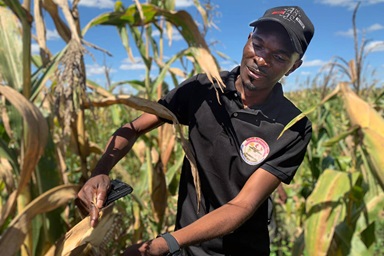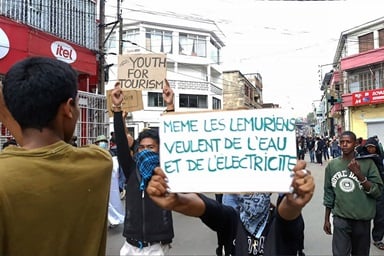Bishops in the U.S. Southeast denounced as “divisive and disruptive” the public refusal by some conferences to conform with church restrictions related to LGBTQ individuals.
“We recognize the pain felt both by those advocating for and those opposing change,” the Southeastern Jurisdiction College of Bishops said in a pastoral letter. “We also view the acts of nonconformity as a violation of our covenant and as divisive and disruptive.”
The letter is the most recent move in the debate on how the church ministers with people who are lesbian, gay, bisexual, transgender and questioning or queer.
The college, which includes active and retired bishops, released the letter the evening of July 12, the eve before United Methodist bishop elections begin in all five U.S. jurisdictions. Three of the U.S. bishop candidates are openly gay.
Nashville (Tennessee) Area Bishop William T. McAllily, president of the college of bishops, said he and his colleagues did not want to be reactive to the potential election of a gay bishop.
“We wanted to assure the Southeastern Jurisdiction that we understand the tension in the church, but we also wanted to give them the confidence in our leadership as we uphold the vows we made at our consecration (as bishops),” McAllily told United Methodist News Service. “We also wanted to speak a word to the church before jurisdictional conferences actually began.”
The Book of Discipline, the denomination’s governing document, states that all people are of sacred worth, but the church considers the practice of homosexuality “incompatible with Christian teaching.” The church bans pastors from officiating at same-gender weddings and bans the ordination of “self-avowed practicing” gay clergy. That clergy ban applies to bishops.
Various United Methodist groups have been working to change those prohibitions for decades with no success. In recent years, the debate has intensified as some United Methodists publicly defy these restrictions and others call on the church to consider splitting up.
With rumors of schism in the air, General Conference — the denomination’s top lawmaking body — opted not to vote on any legislation related to how the church ministers with LGBTQ people.
Instead, the assembly authorized the Council of Bishops to set up a commission to examine and possibly recommend revisions to each policy related to sexuality.
The Southeastern Jurisdiction bishops pledged they would seek “unity in Christ, including the work the General Conference requested the Council of Bishops do in relation to the Commission on Human Sexuality.”
The bishops also committed themselves to the shepherding of all individuals and “administering processes for handling complaints about violations of our Book of Discipline that occur within our episcopal areas.”
McAllily said they wanted to focus the church on the mission that unites United Methodists: Making disciples of Jesus Christ for the transformation of the world.
The bishops addressed a jurisdiction whose theme for this year’s conference is “Hope and Unity in Christ.” The delegates in the Southeastern Jurisdiction will be electing five bishops, a third of the bishops to be elected this week.
Current controversy
Outside the Southeastern jurisdiction, multiple conferences have decided they cannot wait for the bishops’ commission.
At their annual meetings this summer, the New England , Desert Southwest, California-Pacific, and Pacific-Northwest conferences each passed “non-conformity” resolutions, saying they would not comply with provisions that discriminates against LGBTQ people.” The clergy session of Oregon-Idaho Conference supported a similar resolution.
The California-Nevada Conference approved an “aspirational resolution” asking that United Methodists not to follow the Book of Discipline’s restrictions related to LBTQIA individuals. LGBTQIA stands for lesbian, gay, bisexual, transgender, queer or questioning, intersex and asexual.
The New York conference commissioned or ordained four openly gay clergy.
The Rocky Mountain Conference passed a resolution that sexual orientation and gender identity should not be a bar to election to the episcopacy. Conferences in the Western Jurisdiction have each endorsed two gay candidates: the Revs. Karen Oliveto and Frank Wulf. Oliveto is married, and Wulf is in a “long-term covenanted relationship.”
The Rev. David Meredith is a candidate for bishop in the North Central Jurisdiction,
Most of the conferences that have voted to disregard the prohibitions related to gay clergy are in the Western Jurisdiction.
Perhaps tellingly, the theme for the Western Jurisdiction’s meeting in Scottsdale, Arizona, is “Crossing Thresholds.”
Reactions to bishops’ letters
“We are in a very fragile space as a denomination right now, and there is great impatience on the extremes, those who want to change the Book of Discipline, for full inclusion, and for those who want to maintain the current standings,” McAllily said.
He and others at the Southeastern Jurisdictional Conference meeting said what happens next is unclear.
“Is it possible to hold what I call the tension of the opposites long enough for the bishops’ commission to do its work or will we continue to fragment?” McAllily said.
The bishops’ letter offered assurance to at least some delegates.
Turner Arant, a lay delegate from the Mississippi Conference, said he was gratified his jurisdiction’s bishops vowed to uphold the Discipline.
“If bishops don’t start enforcing the Discipline, it’s going to split the church wide open,” he said.
Joyce Moore, a delegate from the Holston Conference, likewise said the letter made her happy.
“They are following the Discipline, keeping calm and keeping the covenant with the church and with God,” she said.
The Southeastern Jurisdiction encompasses the states of Alabama, Florida, Georgia, Kentucky, Mississippi, North Carolina, South Carolina, Tennessee and Virginia.
Hahn is a multimedia news reporter for United Methodist News Service. Contact her at (615) 742-5470 or [email protected].
Like what you're reading? Support the ministry of UM News! Your support ensures the latest denominational news, dynamic stories and informative articles will continue to connect our global community. Make a tax-deductible donation at ResourceUMC.org/GiveUMCom.




